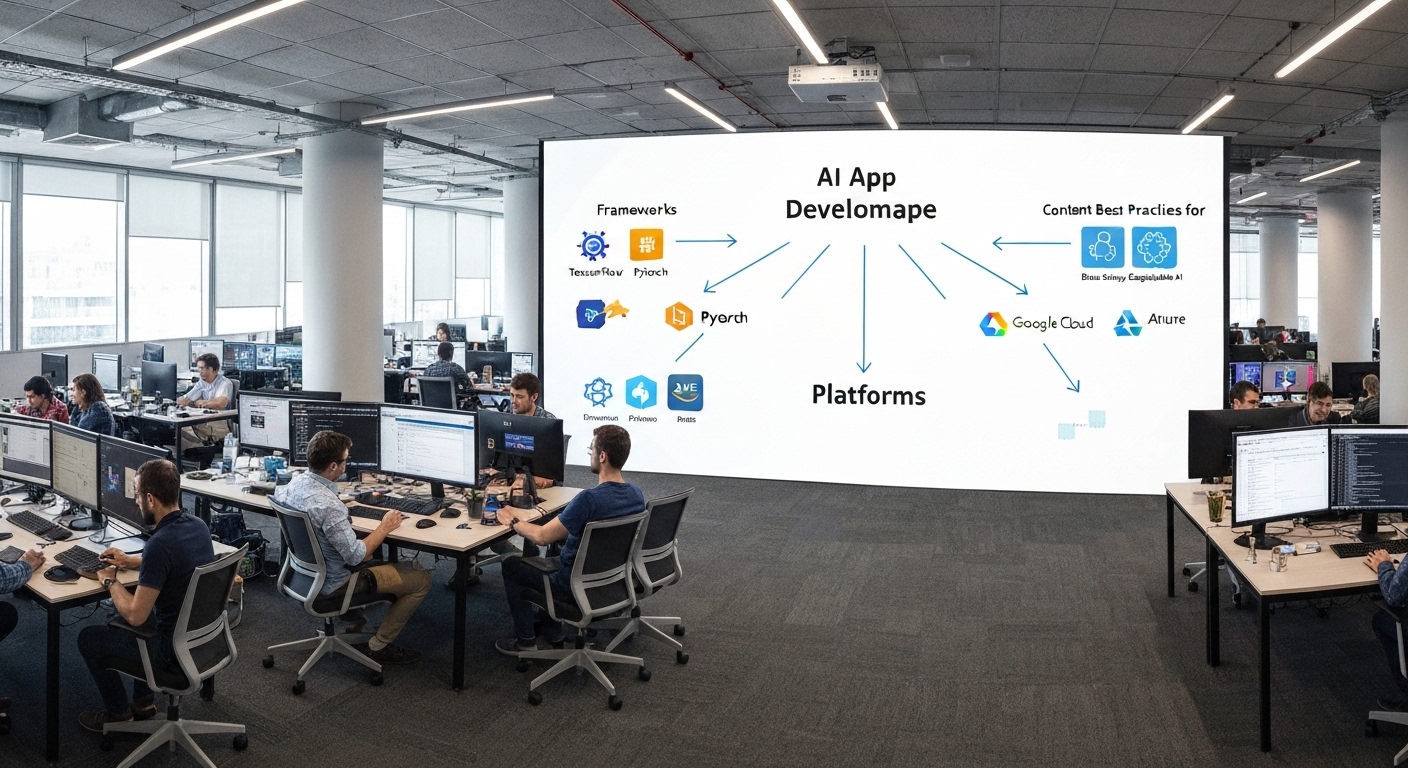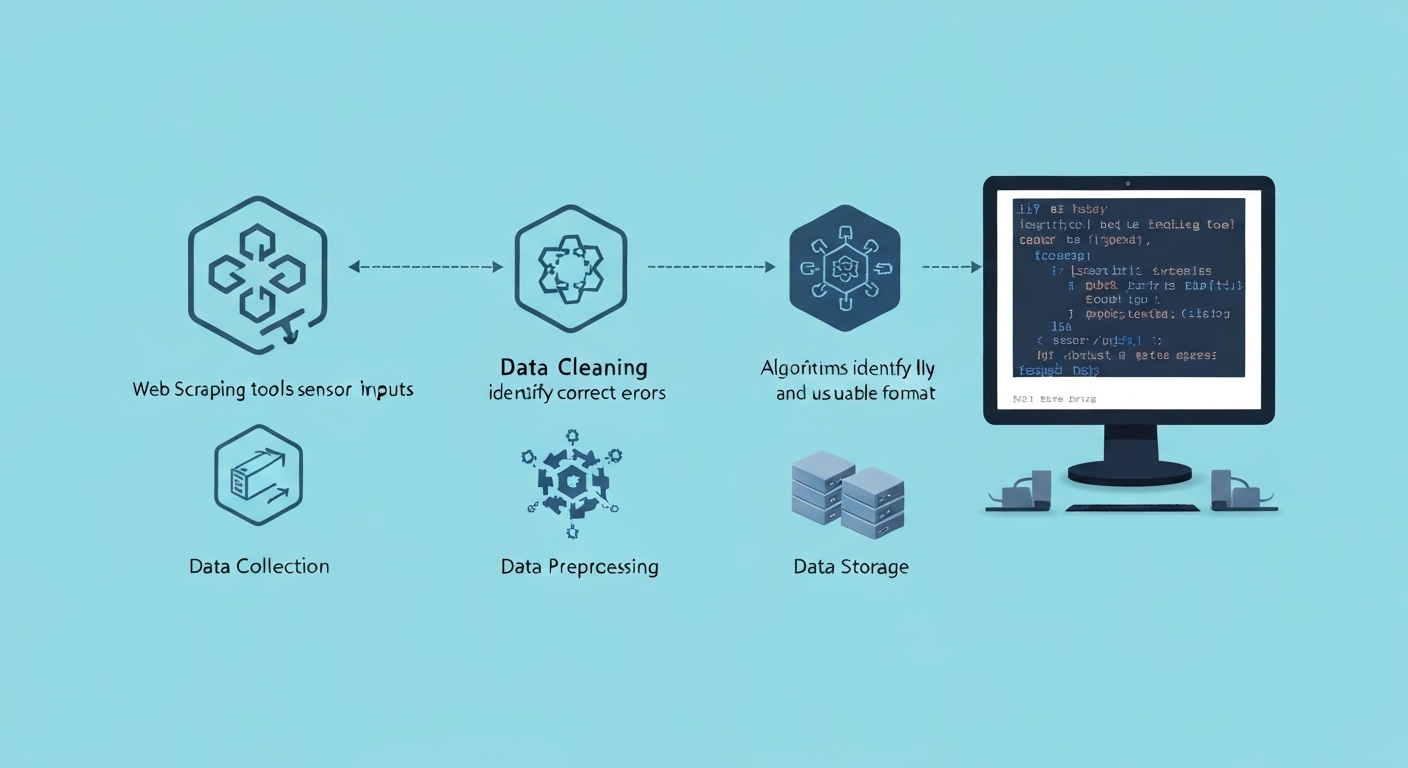Best Practices for AI in App Development : A Comprehensive Guide
Best practices for ai in app development are constantly evolving as the technology matures. Successfully integrating artificial intelligence into applications requires careful planning, execution, and a strong understanding of both AI capabilities and ethical considerations. This article explores key strategies for leveraging AI to create innovative and impactful app experiences.
Understanding the Landscape of AI App Development
AI app development is no longer a futuristic concept; it’s a present-day reality. From personalized recommendations to intelligent chatbots, AI is transforming how users interact with applications. Understanding the current landscape, including the available tools, frameworks, and platforms, is the first step towards successful implementation. This includes exploring options like TensorFlow, PyTorch, and cloud-based AI services.

Choosing the Right AI Model for Your App
The selection of an appropriate AI model is crucial. Consider the specific problem you’re trying to solve and the type of data you have available. Different models excel at different tasks. For example, a convolutional neural network (CNN) might be ideal for image recognition, while a recurrent neural network (RNN) could be better suited for natural language processing. Carefully evaluate the accuracy, speed, and resource requirements of each model.
Data Management: The Foundation of Effective AI Apps
AI models are only as good as the data they’re trained on. Therefore, robust data management practices are essential. This includes data collection, cleaning, preprocessing, and storage. Ensure that your data is representative of the real-world scenarios your app will encounter. Implement data augmentation techniques to increase the size and diversity of your training dataset. Also, consider using synthetic data to address data scarcity issues and to protect user privacy.

Ensuring Data Quality and Relevance
Garbage in, garbage out. This principle holds true for AI. Invest time and resources into ensuring the quality and relevance of your data. Remove duplicates, correct errors, and handle missing values appropriately. Regular data audits can help identify and address potential issues. Also, ensure compliance with data privacy regulations such as GDPR and CCPA.
Ethical Considerations in AI App Development
As AI becomes more prevalent, ethical considerations are paramount. Developers must address potential biases in their models and ensure that their apps are used responsibly. Transparency, fairness, and accountability are key principles to uphold. Implementing explainable AI (XAI) techniques can help users understand how AI models make decisions. Be mindful of potential unintended consequences and take steps to mitigate them.

Addressing Bias and Ensuring Fairness
AI models can inadvertently perpetuate and amplify existing societal biases if they are trained on biased data. It’s crucial to identify and mitigate these biases during the data collection and model training phases. Use techniques such as adversarial debiasing and re-weighting to ensure fairness. Regularly audit your models for bias and take corrective action as needed.
AI Model Deployment and Optimization
Deploying AI models to mobile devices presents unique challenges. Mobile devices have limited processing power and memory, so it’s essential to optimize your models for performance. Techniques such as model quantization, pruning, and knowledge distillation can help reduce the size and complexity of your models without sacrificing accuracy. Also, consider using edge computing to offload some processing to the device itself.
Optimizing AI Models for Mobile Devices
Optimization is key for AI models that run on mobile devices. Model quantization reduces the memory footprint of the model by using lower precision numbers. Pruning removes unimportant connections in the model. Knowledge distillation transfers knowledge from a large, complex model to a smaller, more efficient one. These optimizations ensure smooth performance without draining the device’s battery.
Testing and Monitoring AI-Powered Apps
Testing AI-powered apps requires a different approach than traditional app testing. You need to evaluate not only the functional aspects of the app but also the performance and accuracy of the AI models. Use a combination of unit tests, integration tests, and A/B testing to ensure that your app is working as expected. Continuously monitor your models for drift and performance degradation. Implement retraining pipelines to keep your models up-to-date.

Strategies for Effective AI App Testing
Traditional testing methods are insufficient for AI apps. Focus on testing the AI components independently and as part of the overall application. Use adversarial testing to identify weaknesses and vulnerabilities in your models. Monitor performance metrics such as accuracy, precision, recall, and F1-score. Collect user feedback and use it to improve your models.
Security Considerations for AI Applications
AI apps are vulnerable to a variety of security threats. Adversarial attacks can manipulate AI models to produce incorrect outputs. Data poisoning attacks can corrupt the training data, leading to biased or inaccurate models. Protect your models and data from these threats by implementing robust security measures. Use techniques such as input validation, anomaly detection, and model hardening to secure your AI apps. Prioritize data privacy and comply with all relevant regulations.
Protecting AI Models from Adversarial Attacks
Adversarial attacks involve crafting malicious inputs that cause AI models to make mistakes. Defend against these attacks by using techniques such as adversarial training, input sanitization, and gradient masking. Regularly audit your models for vulnerabilities and patch them promptly. Implement rate limiting to prevent attackers from overwhelming your systems.
AI for Personalized App Experiences
One of the most compelling applications of AI is personalization. By analyzing user data, AI can tailor app experiences to individual preferences. This can lead to increased engagement, improved user satisfaction, and higher conversion rates. Implement recommendation systems, personalized search, and dynamic content delivery to create truly personalized app experiences. Be transparent with users about how their data is being used and give them control over their privacy settings.
Leveraging AI for User-Centric Design
AI can be used to understand user behavior and preferences, allowing for more user-centric app designs. Use AI to analyze user flows, identify pain points, and optimize the user interface. Implement A/B testing to evaluate different design options and choose the ones that perform best. Use machine learning to predict user needs and proactively provide assistance.
The Future of AI in App Development
The future of AI in app development is bright. As AI technology continues to evolve, we can expect to see even more innovative and impactful applications. Areas such as generative AI, federated learning, and explainable AI will play an increasingly important role. Developers who embrace these technologies will be well-positioned to create the next generation of intelligent applications. Staying informed about the latest advancements and adopting a continuous learning mindset is crucial for success.

AI is revolutionizing app development, offering unprecedented opportunities to create engaging, personalized, and intelligent experiences. By adhering to NIST guidelines and prioritizing ethical considerations, developers can harness the power of AI to build apps that are not only innovative but also responsible and beneficial to society. To support your cloud infrastructure needs, explore solutions at flashs.cloud.
Conclusion
Implementing best practices for ai in app development is essential for creating successful and ethical applications. By focusing on data management, ethical considerations, model optimization, testing, security, and personalization, developers can leverage AI to create truly transformative app experiences. Embrace a continuous learning approach and stay informed about the latest advancements in AI to remain at the forefront of this rapidly evolving field.
HOTLINE
+84372 005 899


